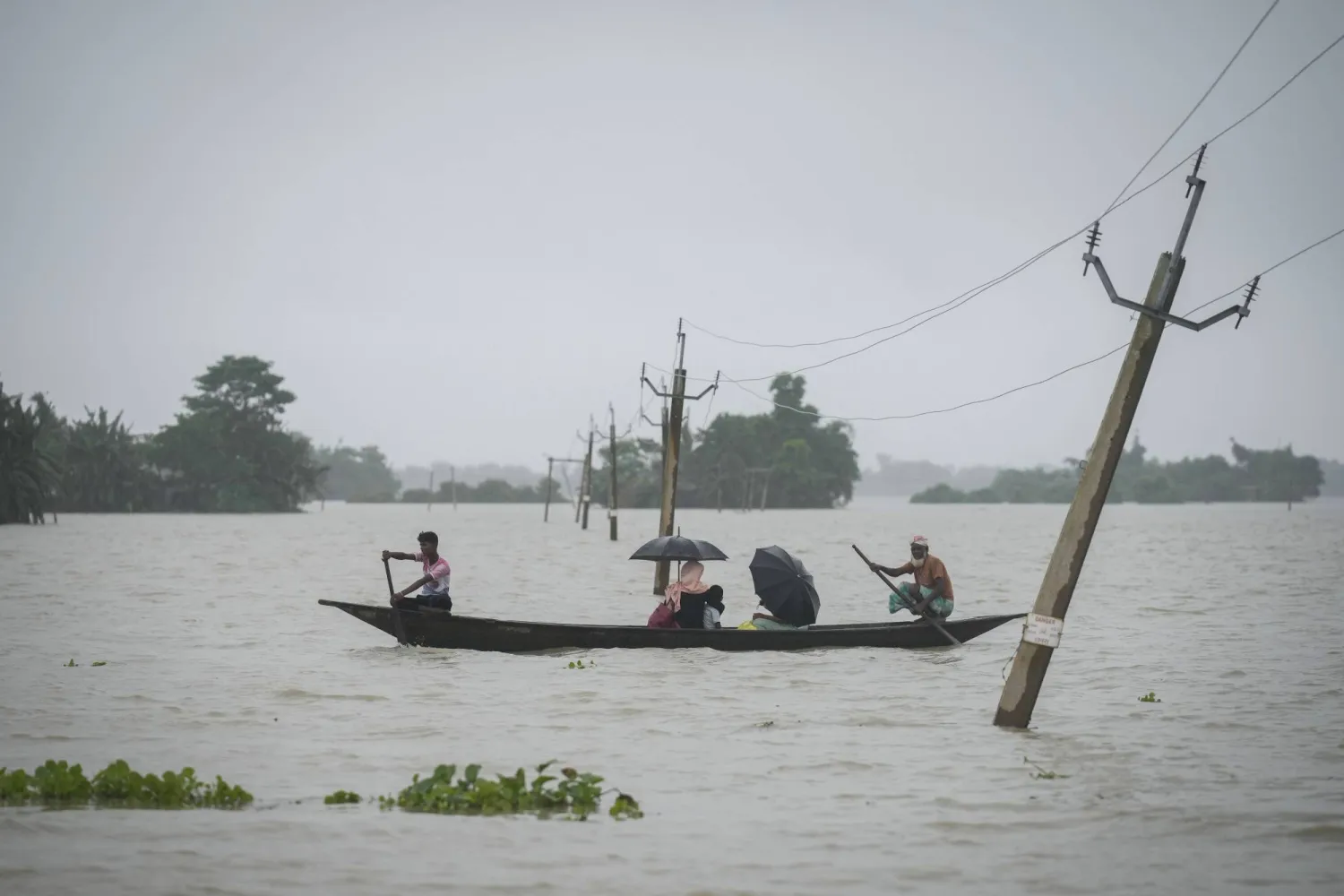Floods and landslides triggered by heavy rains have killed at least 16 people over the last two weeks in India's northeast, where more than 300,000 have been displaced from their submerged homes, authorities said on Tuesday.
The Indian army and air force have been assisting with rescue efforts in Assam, one of the worst-hit states, where a military helicopter flew early Tuesday morning 13 fishermen to safety after being stranded for four days on a small island on the Brahmaputra, one of Asia’s largest rivers, officials said.
The Brahmaputra River, which flows 1,280 kilometers across Assam state before running through Bangladesh, overflows annually. However, this year, increased rainfall has made the river — already known for its powerful, unpredictable flow — even more dangerous to live near or on one of the more than 2,000 island villages in the middle of it.
In neighboring Arunachal Pradesh state, which borders China, landslides have wiped out several roads. Army troopers there rescued 70 students and teachers from a flooded school in Changlang district, police said. Similarly, heavy flooding in the states of Sikkim, Manipur and Meghalaya swept away roads and collapsed bridges.
So far, more than 80 people across six northeastern states have died since the end of May due to floods and mudslides brought on by the rains, according to official figures.
Back in Assam, animals at the famed Kaziranga National Park, home to some 2,500 one-horned Rhinos, are moving to higher ground to escape the floods. Park rangers are monitoring their movements to ensure their safety, the state's chief minister Himanta Biswa Sarma said, according to The Associated Press.
Disasters caused by landslides and floods are common in the country's northeast region during the June-September monsoon season. India, and Assam state in particular, is seen as one of the world’s most vulnerable regions to climate change because of more intense rain and floods, according to a 2021 report by the Council on Energy, Environment and Water.
Floods, Landslides Triggered by Heavy Rains in India Kill at Least 16 People

Flood affected people travel with their belongings through flood waters in Sildubi village in Morigaon district in the northeastern state of Assam, India, Tuesday, July 2, 2024. (AP photo/Anupam Nath)

Floods, Landslides Triggered by Heavy Rains in India Kill at Least 16 People

Flood affected people travel with their belongings through flood waters in Sildubi village in Morigaon district in the northeastern state of Assam, India, Tuesday, July 2, 2024. (AP photo/Anupam Nath)
لم تشترك بعد
انشئ حساباً خاصاً بك لتحصل على أخبار مخصصة لك ولتتمتع بخاصية حفظ المقالات وتتلقى نشراتنا البريدية المتنوعة







